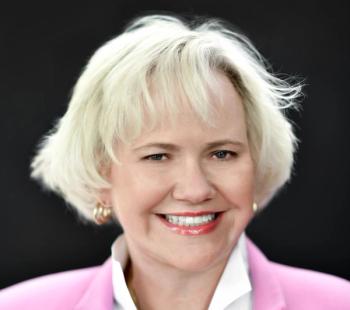
UNC Health rolls out plans for hybrid emergency and urgent care facilities
The system is planning a network of freestanding facilities that offer both urgent care and emergency care for patients. UNC is teaming with Intuitive Health on the effort.
Looking to make it easier for patients to get care, UNC Health is planning to build a host of freestanding facilities that offer both urgent care and emergency care in the same building.
The academic health system says it is aiming to build two hybrid urgent care/emergency facilities in Wake County. But UNC Health is planning to build other facilities in the near future.
UNC Health is teaming with Intuitive Health, a Texas-based firm that operates combined urgent care/emergency facilities.
Dr. Cristy Page, interim CEO of UNC Health, said the initiative is part of the system’s efforts to expand services to patients.
“These state-of-the-art facilities will complement the care already delivered through our hospitals and clinics statewide, reduce unnecessary emergency visits, and improve the overall patient experience,” Page said in a statement.
- Read more:
UNC Health, Duke Health team to build North Carolina’s first freestanding children’s hospital
UNC Health also hopes that the new urgent/emergency facilities can help reduce the number of patients that are going to hospital emergency departments, and some who may not need to be treated at a hospital.
When patients go to UNC Health’s facilities, they’ll be evaluated by a physician who will help determine if a patient needs to go into the emergency department or if their needs can be met in urgent care. For some patients, it’s not always easy to determine what level of care they need. Those who need inpatient care will be sent to a UNC Health hospital.
For those going to the urgent/emergency facilities, UNC Health will direct them to primary care practices for additional care.
Thom Herrmann, CEO of Intuitive Health, said the combined urgent/emergency facilities offer “a more convenient, more efficient model of care that meets patients where they are.”
“Patients no longer need to choose between ER and urgent care, they can come to a single location and get excellent care, in a highly efficient environment, while only paying for the level of care that they actually need,” Herrmann said in a statement.
In
Patients are also able to get in and out of Intuition’s facilities quickly. Patients who need urgent care can typically get in and out in less than an hour, while those who receive emergency services are done in about two-and-a-half hours, Hermann said.
“We focus on the amount of time the patients spend in the facility,” Herrmann said. “They don’t want to be in a healthcare setting any longer than they have to, but they also want to get appropriate treatment.”
Intuitive has partnered with health systems such as Baptist Health, OU Health in Oklahoma, and UF Health in Florida.
More health systems have been looking to expand urgent care facilities in recent years. UPMC and GoHealth Urgent Care






















































































